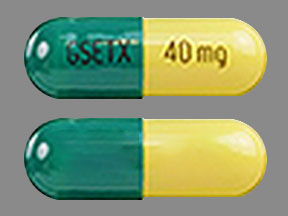
Carvedilol ER Coupons & Savings Card – Discount Prices from $219.26
Generic for: Coreg cr
My prescription
Edit
40MG, Carvedilol ER (90 Capsule Extended Release 24 Hours)
Select pharmacy

CVS
$225.76
COUPON PRICE
Walgreens
$219.26
COUPON PRICE
Walmart
$484.70
COUPON PRICE
Albertsons
$495.85
COUPON PRICECarvedilol ER savings card
Show this card to your pharmacist
Walgreens
$219.26
BIN
ID
PCN
GRP
011867
LHCB8BC4A6
HT
LABH001
Powered by
More prescriptions for hypertension
More prescriptions for hypertension
Price history for Coreg Cr (brand) & Carvedilol ER (generic)
90 Capsule Extended Release 24 Hours, 40MG
Average retail price for Coreg Cr
Average retail price for Carvedilol ER
Average SaveHealth price for Carvedilol ER
Our price history data is based on aggregated prescription data collected from participating pharmacies in America. Our prescription data updates daily to reflect the latest price changes. If you notice a missing data point, it means there wasn't sufficient data available to generate a monetary value for that date.
We analyzed Carvedilol ER prices for (40MG, 90 Capsule Extended Release 24 Hours) over the last 12 months. The average retail price was $903.40, while the average price using the SaveHealth discount card was $436.52. That's a savings of approximately 51.68% when using our Carvedilol ER coupon.
Compared to the generic version, Coreg Cr had an average price of $952.37 over the same time period. With the SaveHealth savings card, Carvedilol ER is 54.16% cheaper on average than Coreg Cr.
*Retail prices are based on pharmacy claims data, and may not be accurate when we don't have enough claims.
Carvedilol ER dosage forms
Dosage Quantity Price from Per unit 10MG 30 Capsule Extended Release 24 Hours $85.16 $2.84 10MG 90 Capsule Extended Release 24 Hours $226.89 $2.52 20MG 30 Capsule Extended Release 24 Hours $85.16 $2.84 20MG 90 Capsule Extended Release 24 Hours $226.89 $2.52 40MG 90 Capsule Extended Release 24 Hours $226.89 $2.52 40MG 30 Capsule Extended Release 24 Hours $85.16 $2.84 80MG 30 Capsule Extended Release 24 Hours $85.16 $2.84 80MG 90 Capsule Extended Release 24 Hours $226.89 $2.52
| Dosage | Quantity | Price from | Per unit |
|---|---|---|---|
| 10MG | 30 Capsule Extended Release 24 Hours | $85.16 | $2.84 |
| 10MG | 90 Capsule Extended Release 24 Hours | $226.89 | $2.52 |
| 20MG | 30 Capsule Extended Release 24 Hours | $85.16 | $2.84 |
| 20MG | 90 Capsule Extended Release 24 Hours | $226.89 | $2.52 |
| 40MG | 90 Capsule Extended Release 24 Hours | $226.89 | $2.52 |
| 40MG | 30 Capsule Extended Release 24 Hours | $85.16 | $2.84 |
| 80MG | 30 Capsule Extended Release 24 Hours | $85.16 | $2.84 |
| 80MG | 90 Capsule Extended Release 24 Hours | $226.89 | $2.52 |
